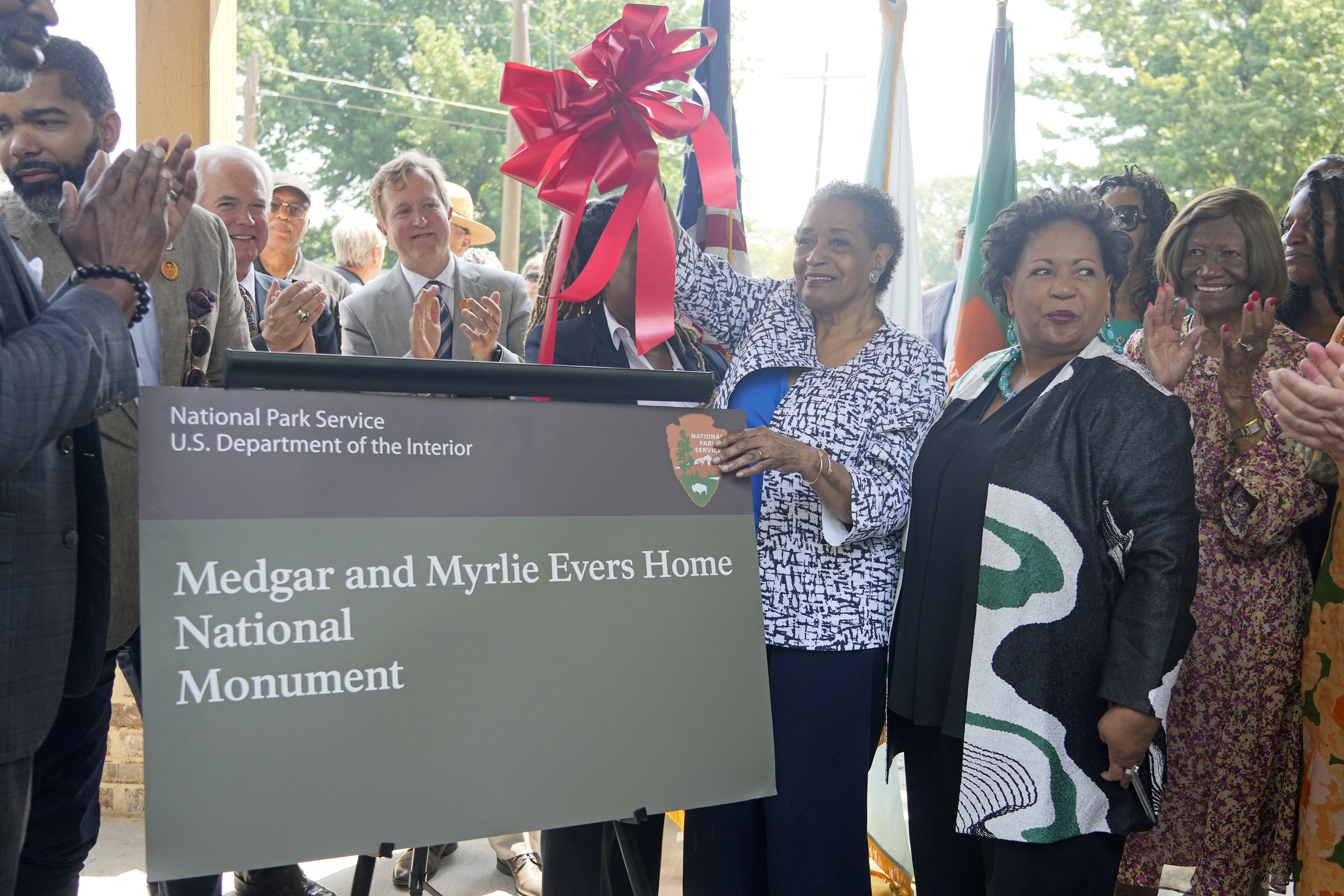JACKSON,
(AP) — At 90, Myrlie Evers-Williams still speaks in a clear, strong voice as she says she terri- bly misses her first love, civil rights icon Medgar Evers, and as she reflects on his work — and her own — to push the U.S. toward a promise of equal- ity and justice for all.
It’s been 60 years since a white supremacist hid in the darkness of night and assassinated Evers outside the family’s Jackson home, shooting the Mississippi NAACP leader hours after then-President John F. Kennedy gave a televised speech advocating civil rights legislation.
Evers-Williams and the couple’s three young children were in the house. After hearing the crack of a rifle, she rushed to her mortally wounded husband, who lay bleeding in the carport.
“Medgar is so very much a part of me, and he’s here,” Evers-Williams
told about 200 people who gathered on a hot and humid morning last week for the ceremonial opening of the Medgar and Myrlie Evers Home National Monument, a unit of the National Park Service.
The monument is in a subdivision where people still raise families in modest two- and three-bedroom homes. A large bouquet of red roses and daisies stood in the carport Monday at the Evers home, which is open for tours by appointment. No appointment is needed at the new visitors’ space nearby, which has a herb and vegetable garden.
Evers was a World War II veteran who fought in Europe and then faced the hostile realities of a deeply segregated society after returning home to Mississippi. As the first field secretary of the Mississippi NAACP beginning in 1954, he led voter registration drives and boycotts to push for racial equality. He also investigated lynchings, beatings, and other violence that Black residents suffered at the hands of white segregationists. His wife worked alongside him as his secretary.
“When my husband was shot at the doorstep of our home — June 12, 1963 — I thought my life was over,” Evers-Williams said. “And I realized it was just beginning because there were three children — Medgar’s children, my children — who were looking up to me.”
Mississippi’s white power structure in the early 1960s prevented most Black people from registering to vote, and most public schools remained segregated until 1970.
Evers-Williams said her home state needed to over- come division and “show the rest of this nation that Mississippi was not at the bottom of the heap, but that we could rise to be what we should be.” She and the children moved to California in 1964; and she raised them there.
In 1976, she married Walter Williams, a longshoreman and union activist.
“God was very good and sent another man in my life — a man who loved and appreciated Medgar,” she said. White supremacist Byron De La Beckwith stood trial twice in the 1960s in the killing of Evers, but all-white juries deadlocked. Prosecutors reopened the case in the early 1990s after new witnesses came forward. In 1994, an integrated jury convicted Beckwith of murder and
sentenced him to life in prison, where he died in 2001. Evers-Williams said Evers never wanted to give up on Mississippi, even when he knew he was in danger. ,…
Thank you for reading Emily Wagster Pettus article on scoopnewsusa.com. For more on “60 years after Medgar Evers’ murder, his
widow continues a civil rights legacy”, please subscribe to SCOOP USA Media. Print subscriptions are $75 and online subscriptions (Print, Digital, and VIZION) are $90. (52 weeks / 1 year).


